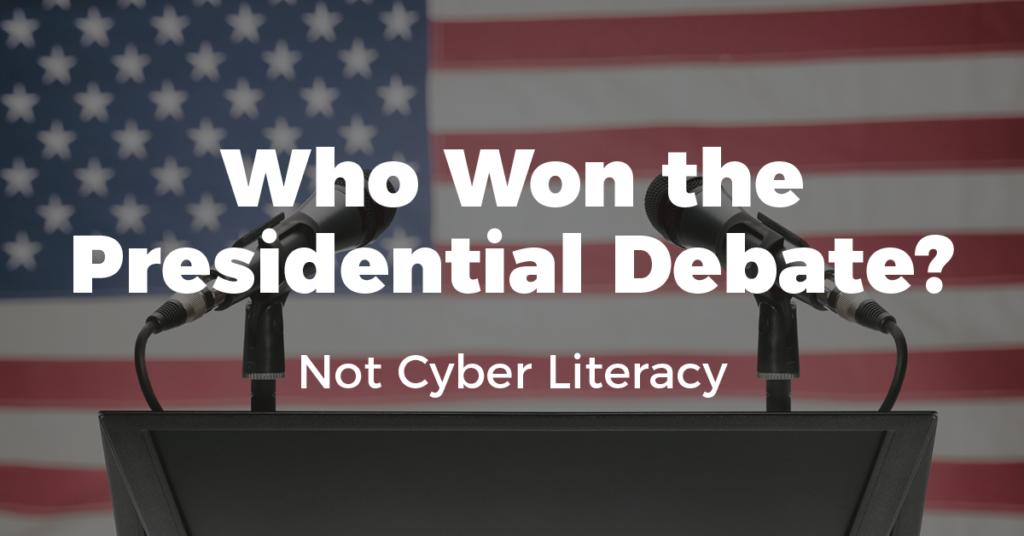Cyber Uncertainty over Cyber Literacy
Monday night’s Presidential Debate recorded the most viewers since televised debates began in 1960 at 84 million viewers. The spectacle was also the “most Tweeted debate ever” and drew over 80 Million viewers.
Fittingly, when the subject was cybersecurity, the candidates’ remarks were the length and substance of a Tweet. That wasn’t because there was a lack of opportunity; the host, Lester Holt, opened the third section of the debate with, “Our institutions are under cyber attack and our secrets are being stolen… Who’s behind it, and how do we fight it?”
While it was certainly refreshing to see cybersecurity and cyber literacy represented on the national stage, the moment prompted a rare point of consensus between the candidates: both seemed united in their concern and confusion about cybersecurity.
The Breakdown
Secretary Clinton used her allocated two minutes to highlight both the difficulty and importance of the issue, clearly identifying critical adversaries: independent groups of cyber criminals and nation state actors. The bulk of her response, however, zeroed in on one nation in particular: Russia. The increasing frequency of cyber attacks emanating from the country – combined with the sore subject of those hacked DNC emails – bolstered Clinton’s concluding accusation about her opponent’s “unacceptable” relationship with Russian President Vladimir Putin.
Clinton’s solutions were mostly opportunities to criticize her opponent, but projected strength and seemed to imply that offensive action could be put on the table as an option.
“We are not going to sit idly by and let state actors go after our private information and government information,” she said; yet, without any specifics as to how we would execute on that plan.
While Clinton’s response was low on details, Donald Trump’s was high on hyperbole. He first cast doubt on Clinton’s claim that Russia was behind the DNC hack, then moved on to ISIS’s use of the Internet, and finally his repeated use of “cyber” as a noun spawned a new sardonic hashtag: #TheCyber.
The Internet also jeered at Trump’s vision of a hacker as “somebody sitting on their bed that weighs 400 pounds” and at Trump’s observation that his 10-year-old son is “so good with these computers, it’s unbelievable.”
After stressing that “the security aspect of cyber is very, very tough,” Trump concluded with a statement that made security professionals – especially the 400 pound ones – cringe: “And maybe it’s hardly do-able.”
The Takeaway
What can Americans take from both candidates’ statements? Not much. Despite the fact that Secretary Clinton described the issue as “one of the biggest challenges facing the next president,” neither presented a plan or a way forward to tackle the ever-widening skills gap in our nation’s workforce that today includes more than 200,000 unfilled cybersecurity jobs in the United States.
As cybersecurity rockets from IT backrooms onto the national stage, “the cyber” is not good enough. It’s time for everyone to become cyber literate. The nation’s top executive is no exception.


